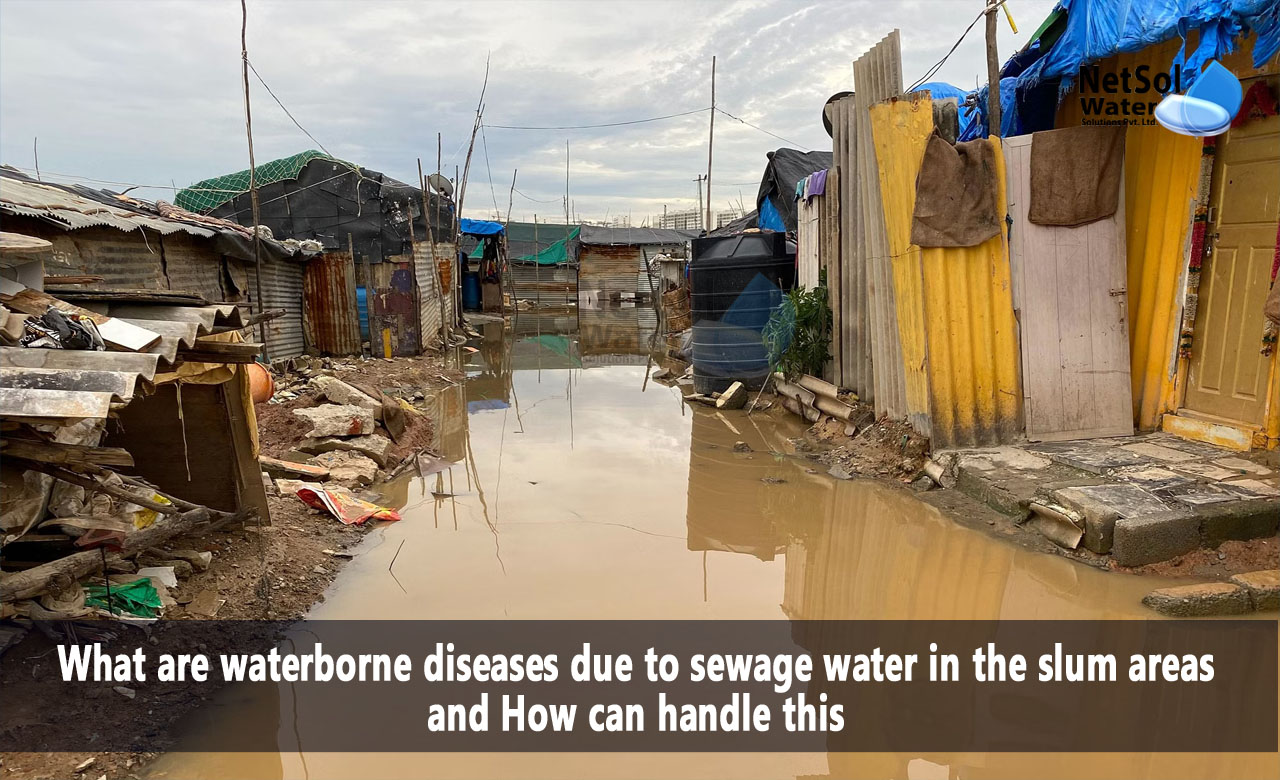What are waterborne diseases due to sewage water in the slum areas?
Access to clean water safe for drinking and cooking is a rarity in densely populated and poverty-stricken areas of many developing countries. It gets worse with the abundance of sewage water and contaminated water sources that cause many types of water-related diseases. We’ll learn about some of the waterborne diseases caused by unsanitary sewage and water in slums, and look at potential solutions for tackling this acute public health issue.
Waterborne Diseases in Slum Areas
Cholera: Cholera — a severe diarrheal disease caused by Vibrio cholerae — can be life–threatening if not treated promptly. It’s spread through taking in water or food sullied with human faeces, which is expected in territories where there are insufficient sanitation and waste treatment frameworks.
Typhoid Fever: Typhoid fever — caused by bacteria known as Salmonella typhi — is spread when contaminated food or water is consumed. High-risk areas for transmission of typhoid are slum areas where sewage contaminates water sources.
Dysentery: Shigella species and Entamoeba histolytica are the common causes of dysentery, which results in bloody diarrhoea and abdominal pain. These disease-causing organisms can thrive in polluted water supplies in low-income neighbourhoods.
Hepatitis A: Hepatitis A is a liver infection that can spread from one person to another when exposed to contaminated water or food. Slum communities are likelier to have hepatitis A outbreaks due to improper sanitation conditions, including sewage runoff.
Diarrheal Diseases: Diarrheal diseases caused by bacteria, viruses and parasites — such as E.coli, Salmonella typhi and Giardia — commonly emerge when sewage is released into water supplies.
Coping Strategies
Addressing the issue of waterborne diseases due to sewage and polluted water in slum areas requires a comprehensive approach involving government agencies, non-governmental organizations (NGOs), and the local community:
Improved Sanitation Infrastructure:
Investing in sewers and the treatment of wastewater is necessary. The proper sanitation infrastructure would help keep the sewage water from polluting the neighbouring water bodies.
Access to Clean Water:
Access to clean AND safe drinking is essential. Community water filtration systems, access to clean water sources, and distribution of water purification tablets could help.
Health Education and Awareness:
Run public health education campaigns to educate citizens on the dangers of contaminated water hygiene, including hand washing and food handling practices.
Community Involvement:
Organise community participation to improve sanitation and water conditions. Incentivise reporting of sewage spills or polluted water sources.
Regular Monitoring and Testing:
Set up a mechanism for periodic testing of water quality in slum areas. This allows us to see the contaminated sources and take action in time.
NGO Interventions:
NGOs can offer hygiene and sanitary bags, organise health education sessions and lobby for better sanitation and water infrastructure.
Government Policies and Support:
In the case of slums, governments should focus on their development and invest in infrastructure to provide basic amenities, including safe drinking water and sanitation.
Conclusion
In developing countries, slum dwellers are exposed to an increased risk of waterborne diseases by sewage and polluted water. This needs a teamwork, which would involve local communities, government agencies and NGOs. The availability of clean water and improved sanitation facilities, along with health education and awareness programs, could prove effective measures to control the spread of these diseases in slums and enhance their overall quality of life. Ultimately, ensuring the fundamental human right to clean and safe water is a crucial goal in the fight against waterborne diseases in slum areas.
Netsol Water is Greater Noida-based leading water & wastewater treatment plant manufacturer. We are industry's most demanding company based on client review and work quality. We are known as best commercial RO plant manufacturers, industrial RO plant manufacturer, sewage treatment plant manufacturer, Water Softener Plant Manufacturers and effluent treatment plant manufacturers. Apart from this 24x7 customer support is our USP. Call on +91-9650608473, or write us at enquiry@netsolwater.com for any support, inquiry or product-purchase related query.



